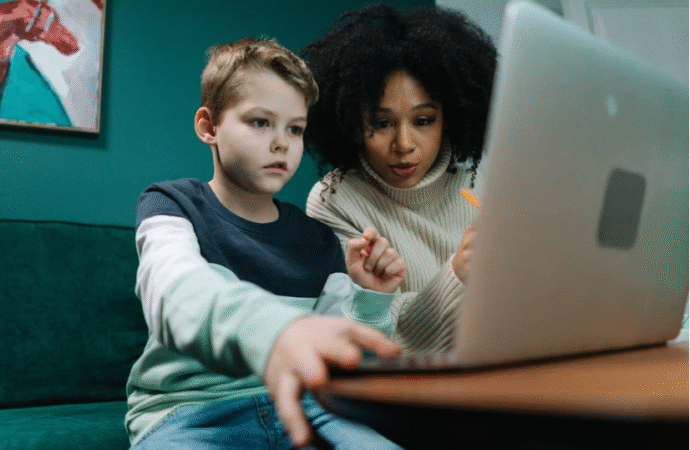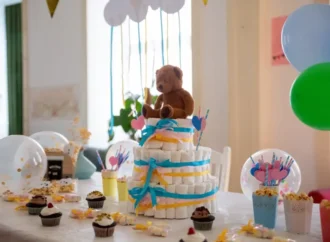From my favorite chair, I heard my 11-year-old son Eric playing indoor baseball with his friend in our basement.
The sound of their rising voices drifted upstairs as they argued over a rule in their made-up game.
Finally, Eric called a stalemate: “Let’s ask my dad — he’ll know.” I heard his footsteps start up the stairs.
But his friend stopped him: “Wait, I’ll just ask ChatGPT.”
I chuckled at the absurdity of the boys consulting ChatGPT about a game they just invented in our basement.
But, as I settled back into reading the paper, my mind drifted to the larger ramifications of what I had witnessed.
A chill passed through my body as I realized our children may soon be going to AI for guidance on much more important questions.
Happiness Lost
The activities most linked to happiness? Old-fashioned experiences like sleep, exercise, in-person friendships, volunteering, and religious services.
On the other side of the spectrum? You’re more likely to be depressed anytime you’re physically alone with a screen.
“We all grew up with TV and video games,” the headmaster acknowledged, “but today’s technology is different. More powerful. More invasive.”
He paused for effect. “It’s in our homes.”
The Enemy Within
“In our homes” — those words haunted me.
Growing up in the ’70s and ’80s, our family sanctuary could only be breached by a phone call to our landline or knock on our door. Mom cooked supper as we ate together at our dining table, sharing stories from our days. Even TV brought us together in the living room instead of isolating us to separate screens.
The headmaster’s mention of home sent my mind to the book of Exodus, where God’s plagues grew in potency and proximity—each judgment pressing closer to a defiant Pharaoh until it breached the inner walls of his palace.
I’ve spent my life embracing technology, writing my first computer program at my son’s age.
But through a parent’s eyes, I now saw past the sleek packaging of technology to something more ominous—a progression as relentless as Egypt’s plagues: a bloody Nile, frogs, gnats, flies, boils, locusts, and finally darkness and death.
And, once seen, I could not shake this dark vision of our modern plagues.
The Digital Swarm
Like Egypt’s plagues, technology advances in waves. Days after the headmaster’s warning, I witnessed another incursion in my own home.
After a childhood squabble, Eric’s friend left our house in a huff. An hour later, my son called to apologize for something he said.
In simpler times, such conflicts resolved naturally through time and space. That short phone call would have been followed by a cooling-off period until their next meeting.
But technology erased that healing distance. His friend, clinging to victimhood, bombarded Eric’s Apple Watch with texts right after the call, as we headed out to church.
Every ding was a gnat biting my son’s wrist.
“Turn it off!” I snapped. “You said you were sorry. He needs to move on. Enough with these disruptions.”
These digital gnats may seem mere annoyances, but they announce a darker plague: teenagers retreating to their bedrooms, replacing human connection with glowing screens.
Dungeons of Darkness
The first video games of the late 1970s were simple and easy to play, mainly a test of reflexes. Your goal was to set a high score or beat your friend sitting next to you in your living room. These games were more like a toy you played with for an hour before you got bored and moved onto something else.
Contrast that with today’s games with deep narratives and photorealistic 3D graphics, some with immersive virtual reality (VR) headsets. Online multiplayer games instantly connect you with friends but also with millions of anonymous strangers hiding behind avatars and screen names—people your children have never met and know nothing about.
My kids regularly tell me stories of friends gaming in darkened bedrooms until 3 in the morning, then stumbling through school in a daze.
In Exodus, God’s ninth plague plunged Egypt into darkness for three days, isolating each person from another.
Today’s teens, hunched over glowing screens in pitch-black rooms, have fashioned their own plague of darkness—a self-imposed exile that cuts them off from family, genuine friendships, and the vibrant outside world.
The Final Plague?
They are playing with the fate of the species itself. For the first time in history, Man has got his head into the lion’s mouth.
- C.S. Lewis, That Hideous Strength
Lewis penned these prescient words in 1945, cautioning against scientific advancement without moral wisdom. Now, as artificial intelligence looms as our gravest plague, his warning proves darkly prophetic.
AI is an incredibly powerful tool, one that I find myself using more every day. If I need to look something up, I now ask ChatGPT in place of a Google search, and it quickly responds like it’s my own 24/7 personal assistant.
Don’t believe me? Take a couple of minutes to watch this video — it’s straight out of the movie Ironman.
I have used AI extensively on our last two family vacations to New York and Washington, D.C., utilizing it as a guide to plan our sightseeing and paths throughout the cities.
And, for anyone helping their kid learn a tough algebra concept at 9:30 at night, it’s amazing that you can take a photo of the question and have ChatGPT spit out the correct solution in seconds. Not only does it display the answer—it shows step-by-step how it got there.
But this technology isn’t just changing behavior—it’s reshaping our souls.
And it’s accelerating at a rate that few can control, especially our children.
Lost in the Machine
The headlines tell a chilling story.
Users mourning ChatGPT’s personality change like the loss of a friend.
A California teen taking his life after months of counseling from AI.
These aren’t isolated incidents–they herald humanity’s great surrender. Our children now turn to chatbots for life advice instead of parents and mentors. With each AI consultation, we forfeit our birthright: the accumulated wisdom of generations, passed down through human hearts and voices.
Sacred Sign
In It’s a Wonderful Life, a young George Bailey faces a dilemma while working at the pharmacy. A distraught Mr. Gower yells at him to deliver medicine that George knows is laced with poison.
Unsure of himself, George glances at the wall and spots a sign that says, “Ask Dad, he knows.” He runs to the Bailey Building & Loan where he sees his father defending the common man from another attack by the miserable Mr. Potter.
That sign reminds us what’s at stake: the vital connection between generations where wisdom passes through a father’s love. Because we’re not just passing on information, we’re building trust between parent and child, strengthening family bonds.
Marking Our Doors
After hearing the presentation at my son’s school, I spent some time with Dr. Twenge’s book iGen. Her work caused me to reflect on the technology in our home.
While I deserve an A for my ban of social media and limits on video games, I see cracks in the foundation. I notice my kids reaching for devices at the first hint of boredom. I spot my teenage daughter watching YouTube Shorts—each swipe drawing her closer to joining the ranks of mindless meme-repeating zombies.
Like those ancient parents in Egypt who marked their doors with lamb’s blood, we too must draw clear lines of protection:
- No unsupervised usage of ChatGPT/AI
- Dinner tables where phones stay silent
- Bedrooms that remain a refuge for rest and reflection
- Car rides where conversation flows freely
- Family board games that drown out phone dings
- Movie nights shared on one screen
For in defending these spaces, we preserve more than our children’s attention—we protect the sacred ground where wisdom nurtures our souls and love grows strong enough to resist any invasion.
—
This article is republished with permission from Midwest Sense.
14 comments















14 Comments
Swissarge
September 22, 2025, 12:59 pmRay: don't quit writing,————— You got "IT"
REPLYKelsey Knopp@Swissarge
September 22, 2025, 2:44 pmStart making cash right now… Get more time with your family by doing jobs that only require for you to have a computer and an internet access and you can have that at your home. Start bringing up to $2700-$5700+Dollar per week . I've started this job and I've never been happier and now I am sharing it with you, so you can try it too. You can check it out here…
Here is I started_______ https://Www.EarnApp1.Com
REPLYJada Thrussell@Kelsey Knopp
September 22, 2025, 2:46 pmI get paid over $220 per hour working from home with 2 kids at home. i never thought i’d be able to do it but my best friend earns over 15k a month doing this and she convinced me to try. the potential with this is endless…,
HERE➤➤ https://Www.HighProfit1.Com
REPLYRSLewis@Jada Thrussell
September 23, 2025, 3:22 amGoogle is now paying $300 to $500 per hour for doing work online work from home. Last paycheck of me said that $20537 from this easy and simple job. Its amazing and earns are awesome. No boss, full time freedom and earnings are in front of you. This job is just awesome. Every person can makes income online with google easily….
REPLY.
More Details For Us→→ http://Www.Payathome9.Com
Jada Thrussell@Kelsey Knopp
September 22, 2025, 2:46 pmI get paid over $220 per hour working from home with 2 kids at home. i never thought i’d be able to do it but my best friend earns over 15k a month doing this and she convinced me to try. the potential with this is endless…,
HERE➤➤ https://Www.HighProfit1.Com
REPLYJimbeau@Kelsey Knopp
September 23, 2025, 3:21 amI get paid over 220 Dollars per hour working from home with 2 kids at home. i never thought i’d be able to do it but my best friend earns over 15k a month doing this and she convinced me to try. it was all true and has totally changed my life. This is what I do, check it out by Visiting Following Website…
REPLY.
.
HERE—————⊃⫸ https://Www.Cash43.Com
MauricioSAlcantara@Kelsey Knopp
September 23, 2025, 5:19 amI get paid more than $120 to $130 per hour for working online. I heard about this job 3 months ago and after joining this i have earned easily $15k from this without having online working skills. This is what I do……………..Www.Works6.Com
REPLYEmma Tyler
September 23, 2025, 10:30 amCorona is big threat of the century which effect physically, mentally and financially/ To over come these difficulties and make full use of this hostage period and make online earning.
REPLYFor more detail visit the given link……..https://Www.Homeprofit1.site
Marian Lucas
September 23, 2025, 2:41 pmHIRE THE TOP CRYPTO & BITCOIN RECOVERY EXPERTS THE HACK ANGELS
I have always thought it would be impossible to recover stolen cryptocurrency funds until I came across a hacker called THE HACK ANGELS RECOVERY EXPERT. Thanks to their expertise and dedication. If you’ve lost Bitcoin due to a wrong transaction, hacking, or forgotten private keys, THE HACK ANGELS RECOVERY EXPERT is here to help. If they could recover my $820,000 there’s hope for you too. I highly endorse their services to anyone looking to have their funds traced and recovered. You can get in touch with them through their Contact
WhatsApp (+1(520)200-2320
Email at [email protected]
Website at http://www.thehackangels.com
If you're in London, you can even visit them in person at their office located at 45-46 Red Lion Street, London WC1R 4PF, UK.
REPLYMarian Lucas
September 23, 2025, 2:44 pmHIRE THE TOP CRYPTO & BITCOIN RECOVERY EXPERTS THE HACK ANGELS
I have always thought it would be impossible to recover stolen cryptocurrency funds until I came across a hacker called THE HACK ANGELS RECOVERY EXPERT. Thanks to their expertise and dedication. If you’ve lost Bitcoin due to a wrong transaction, hacking, or forgotten private keys, THE HACK ANGELS RECOVERY EXPERT is here to help. If they could recover my $820,000 there’s hope for you too. I highly endorse their services to anyone looking to have their funds traced and recovered. You can get in touch with them through their Contact
WhatsApp (+1(520)200-2320
Email at [email protected]
Website at http://www.thehackangels.com
If you're in London, you can even visit them in person at their office located at 45-46 Red Lion Street, London WC1R 4PF, UK.
REPLYgroger
September 24, 2025, 6:34 amI just started 3 weeks ago this web income system that my friend recommended to me and Ive gotten 2 checks for a total of $9,200this is the best decision I made in a long time! This extra cash has changed my life in so many ways, Reg Here:…,.. Limited time only grab it before it's gone!"
Join Now_____________ http://www.get.money63.com
REPLY